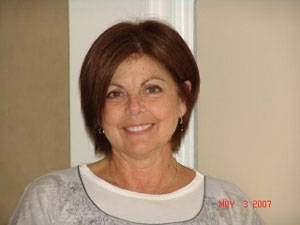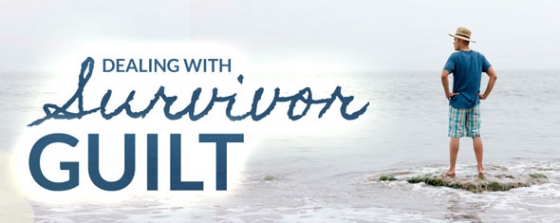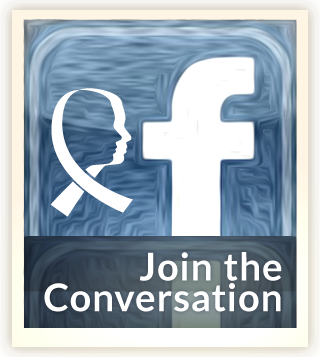 Some people who have faced a cancer diagnosis liken it to a battle, or a fight to be won. It can be a traumatic experience for the patient and their family as they face the physical and emotional struggles of cancer treatment. The hard reality is that not everyone survives the fight. That's where "survivor's guilt" comes in.
Some people who have faced a cancer diagnosis liken it to a battle, or a fight to be won. It can be a traumatic experience for the patient and their family as they face the physical and emotional struggles of cancer treatment. The hard reality is that not everyone survives the fight. That's where "survivor's guilt" comes in.
Many who have survived ask, “Why me and not them?” Leslie Vogel is a breast and ovarian cancer survivor who says she struggled with feelings of guilt about beating the disease when others didn't. Vogel now works with other cancer survivors as a patient advocate with PinnacleHealth Women's Cancer Center.
She spoke with witf’s Megan Lello recently about about her so-called "survivor guilt":
Leslie says, “When I see a young person who dies, for me personally, that is the toughest thing. It’s really hard to see families struggle to make sense of it and move on. It’s not fair, it’s just not fair.”
Leslie has seen many versions of survivor’s guilt, that’s because she now works in an oncology office helping cancer patients. She feels that this opportunity is a gift, and a way to give back after surviving cancer herself. “I am grateful for being able to help cancer patients communicate what they’re experiencing,” she says.
 She offers some advice for those who are experiencing feelings of guilt: “If it feels right to communicate, continue to talk about it and don’t forget the hugs.”
She offers some advice for those who are experiencing feelings of guilt: “If it feels right to communicate, continue to talk about it and don’t forget the hugs.”
Aside from the guilt that can come from surviving and seeing someone else not make it, there are other types of guilt that can manifest itself in different ways. She explains that it could be as simple as a person feeling guilty that all they needed for cancer treatment was surgery while someone else may need intensive chemo and radiation. Leslie says, “That person may feel odd about not needing more.”
And, guilt sometimes presents itself in the chemo room. “ If one person gets a good report, it is hard to get good news and have a person next to you get not so good news- that can be a type of guilt,” she says.
Leslie reminds us that feelings of guilt are normal, but that some may not feel guilt and that’s not wrong- “They’re grateful to be alive.”
 If you are suffering from a prolonged sense of guilt, there are people like Leslie available to help you process those feelings. A patient advocate, therapist, support group or member of your church staff may be able to help you talk you through your feelings.
If you are suffering from a prolonged sense of guilt, there are people like Leslie available to help you process those feelings. A patient advocate, therapist, support group or member of your church staff may be able to help you talk you through your feelings.
Have you struggled with similar feelings of guilt? What has helped you deal with it? Please leave a comment below.
Related stories:
- Listen to Leslie talk about rare cancer awareness in tis episode of Radio Smart Talk
- Explore stories about the emotional stuggles of facing cancer
- "Lost in Transition:" Watch a short film about transitioning from patient to survivor
- Learn abut what a lymphoma survivor calls "New Age Guilt"
- Does a positive attitude help to fight cancer?














comments
RSS feed for comments to this post